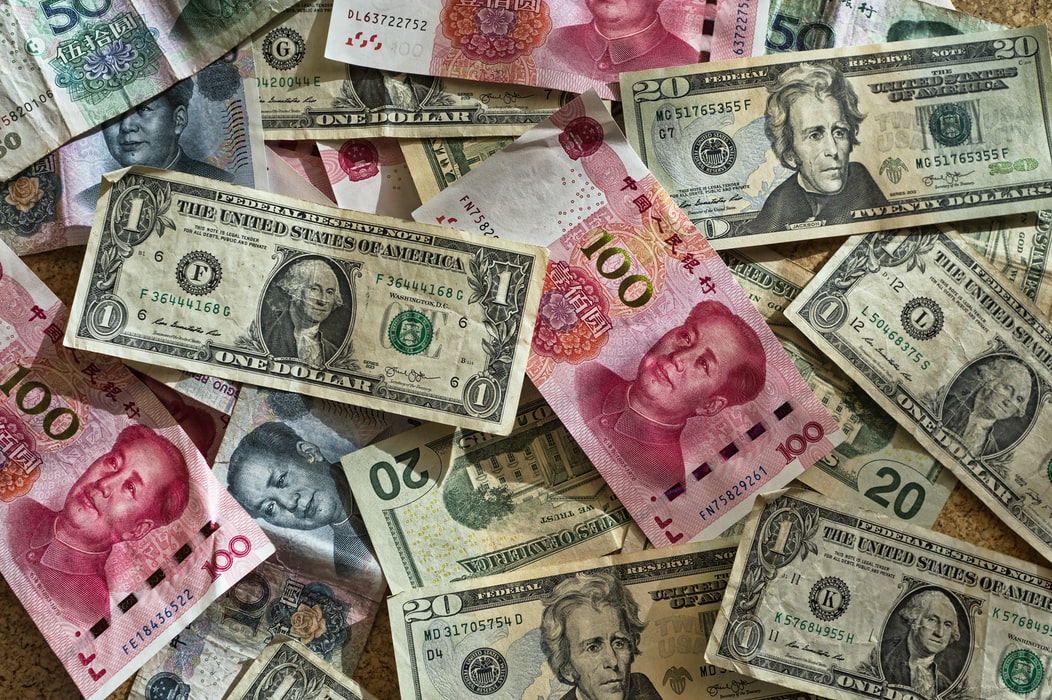Fast Facts on International Trade News on December 18

Europe rose 230%, freight rates hit a record high
Near the end of the year, the volume of the European market remained high. The recurrence of the epidemic has also stimulated the growth of local import demand, and the strong demand for transportation from Asia to Europe and the Mediterranean route has led to high freight rates. On December 11, the freight rate (sea and ocean surcharges) for exports from Shanghai to the European basic port market was US$2,948/TEU, an increase of 24.2% from the previous period. The increase in spot freight rates in Northern Europe has soared compared with the same period last year and increased by 230%. It is reported that the actual freight paid by the shipper is much higher in order to ensure the container and the remaining European space.
A British freight forwarding company confirmed that the freight quotation in Asia and Northern Europe has reached US$10,000 per 40-foot high container. At the same time, all carriers will raise GRI again on December 15.
There is an extreme shortage of 40-foot tall cabinets, and other alternatives are recommended. It is also worth noting that due to port congestion and limited land transportation capacity, cargo to the UK is subject to many restrictions. Delays and operational problems are expected. Some carriers have stopped accepting bookings to the UK.
The big pattern of RMB appreciation is temporarily difficult to reverse

Recently, the exchange rate of RMB against the US dollar has continued to fluctuate, especially in the past two days. The exchange rate of the renminbi against the U.S. dollar hit a two-and-a-half-year high on December 9, but fell by more than a hundred basis points on December 10. On December 16, the onshore RMB spot exchange rate against the US dollar closed at 6.5378 yuan at 16:30, an increase of 68 basis points from the previous closing price. On the 15th, the exchange rate of the renminbi against the U.S. dollar fell sharply during the intraday session, with the onshore renminbi dropping below 6.55, with the largest daily drop of nearly 200 basis points.
Analysts said that the factors affecting the renminbi exchange rate have been intertwined recently. In particular, the US fiscal stimulus and Brexit are uncertain, and the foreign exchange market has entered a period of consolidation. Analysts believe that although the central bank's recent parameter adjustment measures may reduce the rate of appreciation, it is difficult to reverse the appreciation of the renminbi exchange rate because the net issuance of foreign currency bonds by financial institutions is too small relative to the spot trading volume in the foreign exchange market .
The research report issued by Nanhua Futures stated that the renminbi exchange rate may fluctuate mainly in the short term. It is recommended that export companies seize the opportunity to settle foreign exchange as soon as possible . In the short term, import companies can live within their means and wait for better prices to purchase foreign exchange in batches. The market outlook needs to pay close attention to the disturbance of the RMB exchange rate caused by changes in the external environment.
Pakistan cancels the 5% adjustment tax imposed on imported cotton yarn
Recently, the Pakistan Cabinet Economic Coordinating Committee meeting approved the proposal to abolish the 5% adjustment tax on imported cotton yarn until June 30, 2021. Pakistan's "Forum Express" reported on December 9 that a report from Insight Securities showed that Pakistan's textile industry is recovering substantially, supported by the surge in imports of cotton and artificial yarn.
Indian iPhone factory riots cost up to 7.12 million US dollars
Apple’s contract manufacturer Wistron Taiwan said on December 15 that the riots at an iPhone assembly plant in India last weekend caused a loss of up to NT$200 million (approximately US$7.12 million), but the extent of damage to the production facility did not mean the media. The report is so serious.
On December 12th, thousands of workers gathered at Wistron’s factory outside Bangalore, the Indian technology center, to demand payment of back wages and improve working hours. After the police arrived, the incident quickly turned into a riot. The company also said that it is doing its utmost to get the factory back in operation, "cooperating with the investigations of the relevant departments and the police, and continuing to negotiate with the insurance company."
U.S. lists Vietnam and Switzerland as currency manipulators
The U.S. Treasury Department issued a semi-annual exchange rate policy report on December 16, identifying Vietnam and Switzerland as "exchange rate manipulators." The exchange rate policy report released by the U.S. Treasury Department that day mainly reviewed and evaluated the macroeconomic and exchange rate policies of its 20 major trading partners. According to the report, in the year ending June 2020, both Vietnam and Switzerland intervened in the foreign exchange market to hinder effective balance of payments adjustment. At the same time, Vietnam has also taken actions to "obtain an unfair competitive advantage in international trade."
In addition, the US Treasury Department has also added Taiwan, Thailand, and India to the exchange rate monitoring list. Currently, 10 countries and regions including China, Japan, South Korea, Germany, Italy, Singapore and Malaysia are on the list.
Britain and Vietnam sign free trade agreement
Vietnam and the United Kingdom have reached a free trade agreement. The new agreement will take effect on January 1, 2021, and 99% of tariffs between the two countries will be abolished in 7 years. The two trade ministers stated in a joint statement on December 11 that Vietnam will receive 114 million pounds (approximately US$151 million) in export tariff reductions when the agreement is fully implemented . Britain will save 36 million pounds on its exports.
UK and Singapore sign free trade agreement
The United Kingdom and Singapore signed a free trade agreement on December 10 and agreed to start negotiations on the "UK-Singapore Digital Economy Agreement" next year. After the UK-Singapore Free Trade Agreement takes effect, the UK will exempt 84% of tariffs on imported goods from Singapore, and it is expected that the remaining 16% will be exempted on November 21, 2024. Singapore will maintain the current zero-tariff treatment of British products exported to Singapore.
Under the agreement, Singapore and British companies will receive the same benefits as the EU-Singapore Free Trade Agreement (EUSFTA). This includes enjoying duty-free treatment in commodity trade, easier access to their respective service areas and government procurement markets, and reducing non-tariff barriers in the four major industries of electronics, automobiles and related parts, pharmaceutical products and medical equipment, and renewable energy.
73,000 companies in Italy shut down due to the epidemic
The Italian National Bureau of Statistics released the report "Business Status and Outlook under the New Coronary Pneumonia Epidemic" on December 14 local time. The data shows that between June and October this year, 73,000 companies across the country closed their doors and closed operations, accounting for 7.2 of all companies interviewed. %, of which 17,000 said they would not resume business. According to statistics, 85% of closed companies are micro-enterprises with a scale of less than 10 people, and the main industries involved are sports, entertainment, catering and accommodation.
The survey results also showed that between June and October this year, nearly 70% of Italian companies had a decline in turnover compared with the same period last year. One third of the companies encountered operational difficulties , and 37.5% had applied for cash or credit support from the government. In addition, more than 60% of the surveyed companies expect their operating income from December this year to February 2021 to continue to decline year-on-year.
